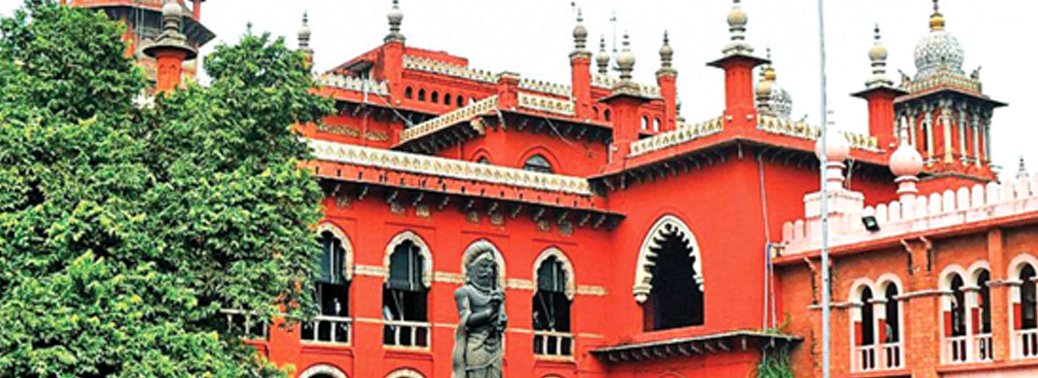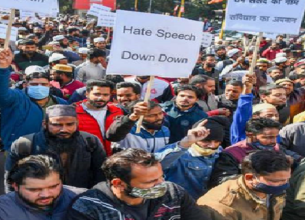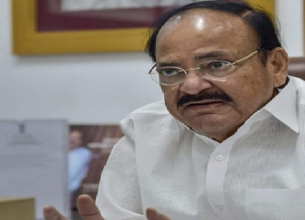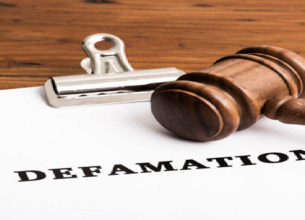PLEA CHALLENGING APPOINTMENT OF ADDITIONAL JUDGE REJECTED
05, May 2020

Prelims level : Judiciary
Mains level : GS-II Structure, organization and functioning of the Executive and the Judiciary Ministries and Departments of the Government; Pressure Groups and Formal/Informal Associations and their Role in the Polity.
Why in News?
- The Supreme Court rejected a petition filed by a district judge challenging the appointment of a ‘junior’ judicial officer as an additional judge of the Karnataka High Court on the ground that it breaches the Seniority Rule.
What is the Issue?
- In his plea, Shivamogga Principal District Judge RKGMM Mahaswamiji said: It is a case of superseding/passing over of a senior District judge (who was appointed on February 25, 2008, under reserve category ie., Scheduled Caste) by junior district judge and recommendation of Respondent No. 11 (P N Desai) by the collegium of Karnataka High Court.
- It is unlawful, arbitrary and in clear violation of statutory rules / administrative instructions contained in the official memorandum dated October 9, 1985, and involved bias of malafide and it clearly violated the functional rights guaranteed to the petitioner under Articles 14 and 16 of the Indian Constitution.
Appointment of the Judges of High Courts:
- The procedure of appointing the Judges of the High Courts in India is slightly different from the appointment of the Judges of the Supreme Court.
- As per article 217, the chief Justice of the high court is appointed by the President in consultation with the Chief justice of India as well as the Governor of the state in question.
- A collegium system has evolved over the years in which a Collegium headed by the CJI makes recommendation to the government for appointment of judges.
- The Collegium recommends the names to the law ministry which after scrutinizing send the paper to the president.
- The president either approves the names or returns the names for reconsideration of the Supreme Court.
- If still the Supreme Court sends the same names president appoints the persons recommended.
Qualification to Become a High Court Judge:
- A person to be appointed as a judge of a high court should be a citizen of India. Further,
- He should have held a judicial office in the territory of India for ten years or
- He should have been an advocate of high court(s) for ten years.
- There is no minimum age fixed for high Court judges, and unlike in Supreme Court, there is no provision for appointment of a distinguished jurist as a judge of a high court.
Term and Salary of HC Judges:
- A Judge of High Court holds the office until he completes the age of 62 years. (In Supreme Court it is 65 years).
- The salaries and allowances of the Chief Justice of High Court and Judges of the High Court are decided by the parliament by law, time to time.
- The salaries and other expenses of the judges and maintenance of the state high courts are charged from consolidated fund of the state.
- Pension of retired high court judges comes from Consolidated Fund of India.
Removal of the Judge of a High Court:
- A Judge of the High Court can be removed from office only for proven misbehaviour or incapacity and only in the same manner in which a Judge of the Supreme Court is removed.
- The President of India can remove a Judge of the High Court, from his office only if each house of the parliament passes a resolution by a two third majority of its members present and voting in each house requesting him to remove the Judge.
How HC Judges are transferred?
- Transfer of High Court Judges is done by the President in consultation with the following
- Chief justice of India’ whose opinion is formed by senior most judges of the Supreme Court.
- Chief Justice of the High court from where transfer is to take place.
- Chief Justice of the High Court to where the transfer is to take place
Post retirement Jobs of HC Judges:
- The retired permanent judges of a high court are prohibited from pleading or acting in any court or before any authority in India except the Supreme Court and the other high courts.
- However, Government Generally uses the retired higher judiciary judges as heads of various Commissions.
- There has been a demand from certain sections of the society that there should be a “cool off” period of two years for the Retired Judges before they are Installed in other offices.












